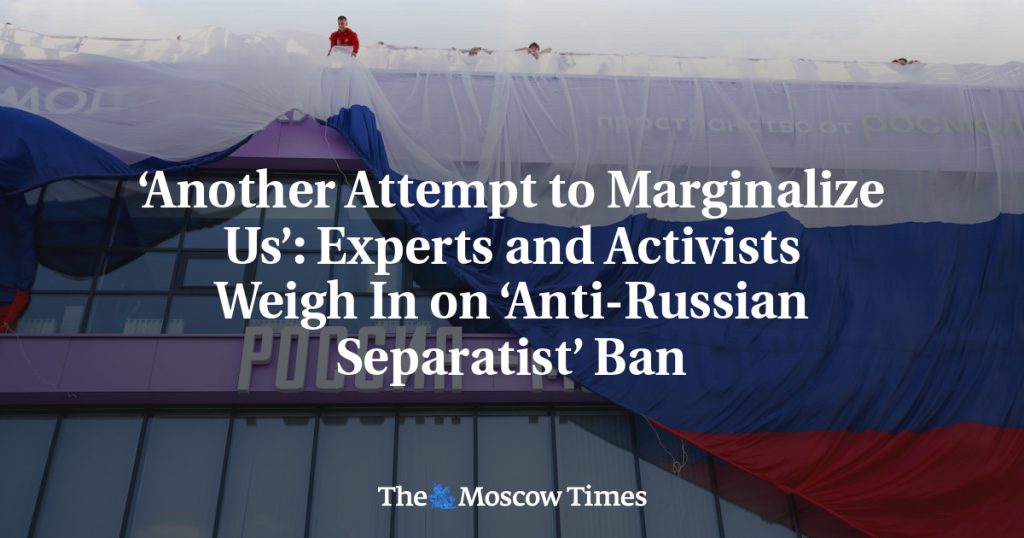Russia’s Supreme Court recently banned the “Anti-Russian Separatist Movement” and its structural divisions as an extremist organization, despite the fact that this organization does not formally exist. The Justice Ministry in Russia defined the group as an “international public movement to destroy the multinational unity and territorial integrity of Russia.” Some believe that this vague definition is targeting movements advocating for Indigenous peoples’ rights and Russia’s decolonization, which could lead to severe consequences for affiliates and supporters who may face up to six years in prison if found guilty of involvement in the banned movement.
Leading Indigenous activists and human rights defenders have shared their interpretations and predictions regarding the implications of this ban. Viktoria Maladaeva, founder of the Indigenous of Russia Foundation, voiced concerns that the ruling would hinder support for decolonial and Indigenous organizations due to increased surveillance and fear among supporters. She warned people in Russia to refrain from commenting or engaging with social media posts related to Indigenous rights movements to avoid potential criminal prosecution.
Stefania Kulaeva, a human rights defender and expert at the Anti-Discrimination Center (ADC) Memorial in Brussels, highlighted the history of criminal prosecutions for advocating federalization in Russia and the criminalization of human rights activities through the recent Supreme Court ruling. She emphasized that this ruling poses a threat not only to minority rights activists but to all minorities in Russia. Abubakar Yangulbaev, a Chechen human rights lawyer and activist, criticized the ruling as a reflection of the Russian regime’s disregard for the sovereignty of its republics and neighboring territories, aiming to suppress self-determination and secession movements.
Sargylana Kondakova, co-founder of the Free Yakutia Foundation, expressed her views on the Supreme Court’s ban, suggesting that it is an attempt by the Kremlin to intimidate ordinary people in ethnic republics and regions outside of Moscow and St. Petersburg who oppose Russian imperialism and government policies. She viewed the ban as a tactic to marginalize Indigenous people and suppress any criticism of the government, framing it as “extremism.” Kondakova believes that the labeling of movements from ethnic republics as extremist is a strategy to discourage dissent and maintain control over these regions.
Overall, the ban on the “Anti-Russian Separatist Movement” by Russia’s Supreme Court has sparked concerns among activists and human rights defenders who fear the consequences for individuals supporting Indigenous rights and decolonization movements. The vague definition of the banned organization has raised suspicions about the government’s intentions to crack down on dissent and silence those advocating for minority rights. This ruling signifies the increasing restrictions on freedom of expression and civil rights in Russia, leading to a climate of fear and surveillance among supporters of Indigenous and minority rights movements. The ban serves as a tool for the Russian government to assert control and suppress any opposition to its policies, particularly in ethnic republics and regions where dissent is prevalent.


